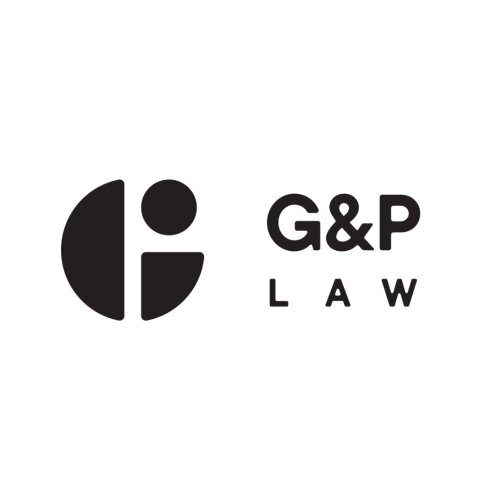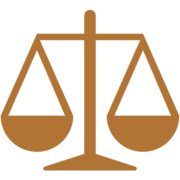Best Land Use & Zoning Lawyers in Bulgaria
Share your needs with us, get contacted by law firms.
Free. Takes 2 min.
Free Guide to Hiring a Real Estate Lawyer
Or refine your search by selecting a city:
List of the best lawyers in Bulgaria
About Land Use & Zoning Law in Bulgaria
Land use and zoning law in Bulgaria governs how land within the country's borders can be used and developed. The regulations are designed to ensure systematic urban planning, conservation of cultural and environmental resources, and fair use of land across various sectors. The key legislation includes the Spatial Development Act, which provides the framework for zoning and land-use planning at the national, regional, and local levels. Municipalities play a crucial role in implementing these laws, creating detailed plans that align with Bulgaria's broader urban development strategies.
Why You May Need a Lawyer
There are several situations where you might need legal advice in the field of land use and zoning in Bulgaria:
- Disputes over land boundaries and ownership.
- Navigating zoning regulations for property development or renovation.
- Engaging in real estate investment and needing to understand land use restrictions.
- Facing enforcement actions for alleged zoning violations.
- Applying for permits and needing assistance with compliance issues.
Due to the complex nature of land use and zoning laws, a lawyer can provide invaluable assistance in safeguarding your legal rights and ensuring that your activities comply with local regulations.
Local Laws Overview
Bulgaria's land use and zoning regulations are mainly governed by the Spatial Development Act, which stipulates the criteria for planning and zoning. This legislation outlines the procedures for amending zoning plans and details the responsibilities of municipal authorities in land management. Key aspects include:
- Classification of land for different uses, such as residential, commercial, agricultural, and mixed-use zones.
- Environmental protection requirements, particularly for sites within or near protected areas.
- Building and development codes that set height, bulk, and other property development standards.
- Processes for public participation and objection during the planning stages.
Frequently Asked Questions
What is the Spatial Development Act?
The Spatial Development Act is the primary legal framework governing land use and zoning in Bulgaria. It outlines planning procedures, zoning categories, and the roles of municipal authorities in spatial planning.
How can I find out the zoning classification of my property?
You can obtain this information from your local municipal planning office, which maintains records of zoning classifications for all properties within its jurisdiction.
Can zoning regulations change, and how will I be informed?
Zoning regulations can change through amendments to the local land use plan. Such changes typically require public notification and feedback before being adopted.
What steps should I take if I want to develop land in Bulgaria?
First, consult the local zoning plan to ensure your development aligns with the designated use. You must then apply for and secure the necessary building and development permits from the municipal planning office.
What should I do if I face a zoning violation notice?
Consider consulting with a lawyer specializing in land use to assess the notice's legitimacy and work on resolving any non-compliance issues to avoid penalties.
Can I appeal a zoning decision that affects my property?
Yes, you can appeal zoning decisions by following the procedures outlined in the Spatial Development Act, which usually involves submitting a formal appeal to the local administrative court.
How do zoning laws protect environmental interests?
Zoning laws regulate land use around environmentally sensitive areas, ensuring that any development projects adhere to environmental impact assessments and compliance checks.
Are there tax implications associated with different zoning classifications?
Yes, different zones may have varying tax rates, and changes in zoning classifications can affect property value assessments and associated taxes.
Do local municipalities have unique zoning codes?
Yes, while the Spatial Development Act provides a national framework, each municipality has the authority to develop unique zoning ordinances tailored to local needs.
How long does it take to obtain a zoning permit?
The duration varies based on the complexity of the proposed development and the efficiency of the local municipal process, but typically ranges from a few weeks to several months.
Additional Resources
For further information or assistance with land use and zoning in Bulgaria, consider the following resources:
- Local Municipal Planning Offices
- Bulgarian Chamber of Architects and Surveyors
- Ministry of Regional Development and Public Works
- National Land Use and Spatial Planning Association
Next Steps
If you require legal assistance in land use and zoning, consider taking the following steps:
- Consult with a lawyer specializing in Bulgarian land use and zoning law to assess your case or project's legal needs.
- Gather all necessary documentation related to your property and any municipal communications.
- Schedule a meeting with the local municipal planning office for clarification on zoning classifications and requirements.
- Keep informed on any changes to land use laws that may affect your property or interests by regularly reviewing legal bulletins or consulting your lawyer.
Lawzana helps you find the best lawyers and law firms in Bulgaria through a curated and pre-screened list of qualified legal professionals. Our platform offers rankings and detailed profiles of attorneys and law firms, allowing you to compare based on practice areas, including Land Use & Zoning, experience, and client feedback.
Each profile includes a description of the firm's areas of practice, client reviews, team members and partners, year of establishment, spoken languages, office locations, contact information, social media presence, and any published articles or resources. Most firms on our platform speak English and are experienced in both local and international legal matters.
Get a quote from top-rated law firms in Bulgaria — quickly, securely, and without unnecessary hassle.
Disclaimer:
The information provided on this page is for general informational purposes only and does not constitute legal advice. While we strive to ensure the accuracy and relevance of the content, legal information may change over time, and interpretations of the law can vary. You should always consult with a qualified legal professional for advice specific to your situation.
We disclaim all liability for actions taken or not taken based on the content of this page. If you believe any information is incorrect or outdated, please contact us, and we will review and update it where appropriate.
Browse land use & zoning law firms by city in Bulgaria
Refine your search by selecting a city.
















